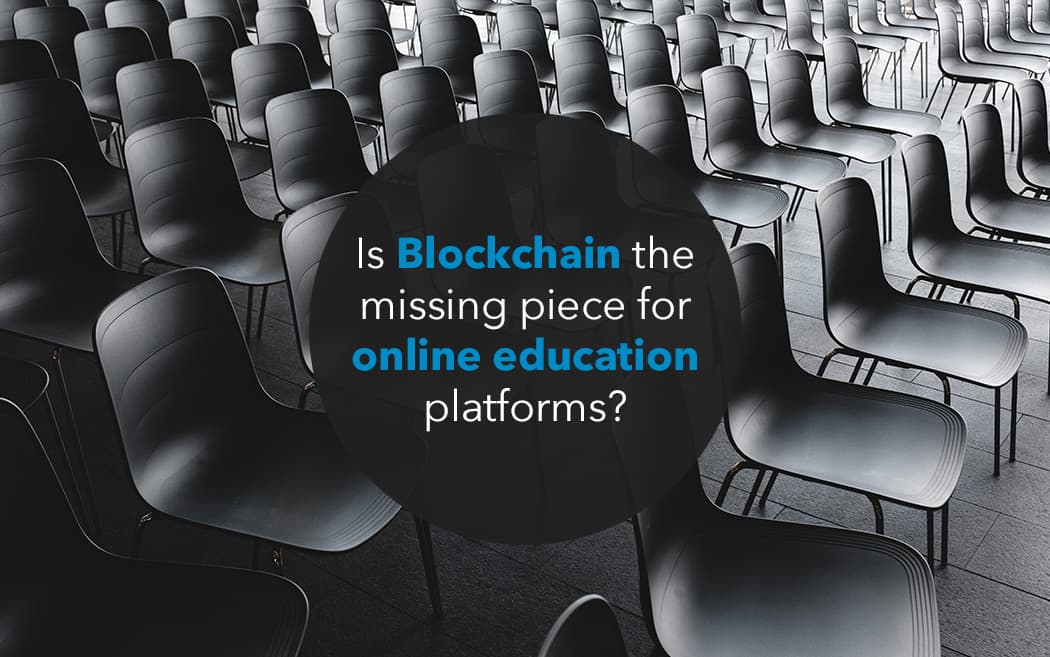Over the last 10 years (give or take a few), we have seen technology rapidly disrupt many industries. The hotel industry got a huge awakening thanks to Airbnb, the taxi industry was disrupted by the likes of Uber, and the Cable TV industry has been forced to completely re-think their business model because of streaming services like Netflix to name just a few of the bigger ones. As time progresses, we see this disruptive nature of technological advancements become more prevalent and there is no evidence of it slowing down anytime soon — quite the contrary in-fact.
One industry however has managed to withstand the onslaught thus far, though not due to a lack of effort from the disruptors. The education industry, which has been estimated to be valued at $4.6 Trillion dollars globally, while embracing technology to enhance its offerings, has yet to be ‘disrupted’ in the broad sense of the word. Schools & Universities continue to be the de-facto education options people are willing to consider in order to further their careers and job opportunities. So why is that the case?
Accreditation
In the last 5 years, online classes (or e-learning as it was once called) have become common place. Platforms such as Udemy and Coursera have hundreds of courses available at extremely affordable prices, and some are even free. Major universities such as Stanford, Harvard & MIT are offering free online courses from their curriculums as well, and they have received a lot of attention from the academics world. However, the students are not considering these as legitimate options to replace traditional ones (such as enrolling in a 4 year degree at said university).
A study showed that when Stanford put out a free online course, they received over 120,000 sign-ups. That is quite a hefty number. However, only 2% of those people completed the course. When these 120,000 students were surveyed, it was uncovered that had the online course counted towards a Stanford degree credit, or resulted in a diploma from Stanford, the vast majority of the students would have taken it more seriously and completed it. This clearly tells us that while the pursuit of knowledge is great, and extremely important, it is the accreditation that counts towards improving job prospects that students really covet. And why wouldn’t they? If students spend hours a day for weeks at a time to learn something valuable, but are not given the opportunity to work at a company and apply those skills to build a career, what’s the point?
Fragmentation
Next comes the issue of fragmentation. Via online courses, I may have the ability to put together a comprehensive curriculum across various sites, platforms and online courses, that teach me all the different subjects and topics I would take in a traditional 4 year institute to earn an Bachelors of Science degree. However, when I go to an employer, I am not able to show them something (a degree) that attests to the fact that I have indeed completed the appropriate courses to earn said degree. Since my knowledge was gained from a multitude of sites, there is no transparent and tamper-proof way for the employer to be able to verify my claims that I do have the required skill-set based on the courses I have completed. This makes it less desirable for students to enroll in these online courses as well.
Need to design a product?
Our team of user-experience designers can turn a project brief into a visual prototype, collaborating with you every step of the way.
Blockchain — The Missing Piece
The idea that the education industry will be ripe for disruption in the coming years thanks to the emergence of Blockchain technology has been gaining a lot of momentum as of late. The concept here is that there would be a decentralized, transparent, tamper-proof ledger which would contain the educational qualifications and progress made by every single person (who chooses to be on the platform). So, imagine that I were to take an online course in Economics from Stanford, Fundamentals of Javascript from CodeSchool, and Intro to Big Data from Udemy. Upon completing each of these courses, the online school would be able to make a verified entry into the Blockchain, updating my educational qualifications to include the new course I have just completed, and give me the appropriate credit.
The other side of this coin is the employer then having the ability to verify my academic credentials by querying the Blockchain and find out exactly which courses I have completed, from where, and when. In the near future, online schools could potentially be vetted by an open & transparent regulatory body that ensures that these organizations are legitimate, dispensing accurate knowledge through well designed curriculums, and have the right tools & features in place for the students to achieve success. Once verified, these schools would have the ability to give academic credit to the student’s educational profile on the Blockchain. This information would be public knowledge, and employers would have the ability to retrieve it from the Blockchain on demand.
Further Benefits & Advantages
Beyond just the ability to design your own curriculum online via a mash-up of interesting courses found on various online schools, the ability of having a decentralized ledger of people’s educational achievements on a granular level will also enable machine learning & artificial intellegence to open many doors. Imagine having the ability to get the perfect candidates for an open position by matching the job requirements against the courses completed by a pool of candidates. Employers could potentially even sponsor certain courses in order to incentivize people towards completing the courses they find most relevant to their job openings. Machine learning could sift through terrabytes of educational profiles and narrow them down to a handful of the candidates that best suit the position. The implications are monumental.
Interested in leveraging Artificial Intelligence?
We can custom build & integrate AI into your existing workflow to help you make more informed decisions.
Conclusion
The ground work has already been laid on the disruption of the education industry. The future is one of abudnance, where people will have equal access to quality education and mountains of student debt (hopefully) will become a thing of the past. This bodes well for us, because learning and acquiring information is no longer a process that ends when you get a degree. It is a life long endeavor for most of us, thus making it imperative to streamline this process as quickly as possible. Currently, only 3 billion people out of the 7+ billion of the Earth’s population are on the Internet. It is predicted that by 2022, the rest of the 4 billion people will also come online, and they will be coming online with access to gigabit Internet speeds. We need to ensure that they are provided the tools to learn, grow, and contribute to this rapidly evolving world, and educational undoubtedly will be at the heart of it.
 Web Applications
Build web apps using cutting-edge technology
Web Applications
Build web apps using cutting-edge technology
 Business Intelligence Apps
Empower your business with fast & actionable BI Apps
Business Intelligence Apps
Empower your business with fast & actionable BI Apps
 Mobile Applications
Build cross-platform apps for iOS and Android devices
Mobile Applications
Build cross-platform apps for iOS and Android devices
 Internet of Things Apps
Streamline your operations with cloud-based IoT apps
Internet of Things Apps
Streamline your operations with cloud-based IoT apps
 AI Products
Unlock the power of AI & ML with our expertise
AI Products
Unlock the power of AI & ML with our expertise
 Minimum Viable Product (MVP)
Mitigate risks & accelerate your project development
Minimum Viable Product (MVP)
Mitigate risks & accelerate your project development
 Enterprise Software
Build custom enterprise solutions for your business
Enterprise Software
Build custom enterprise solutions for your business
 Software as a Service (SaaS)
Scale your business with ease and cost-efficiency
Software as a Service (SaaS)
Scale your business with ease and cost-efficiency



